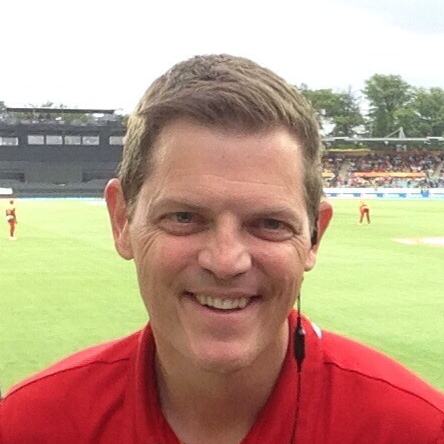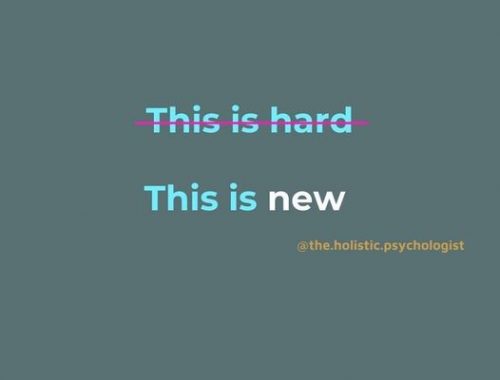Canberra Communications Professional Series: Simon Langford
For the first Canberra Communications Professional Series, I spoke to Simon Langford, Communications Director at the Department of Industry, Innovation and Science (or from 1 February Department of Industry, Science, Energy and Resources).
Simon and I go way back, to the heady days of home insulation and the carbon price at the Department of Climate Change and Energy Efficiency. We have stayed in contact as we both went our separate way in government and will catch up for coffee often to chat about life and work. One of the first things we always ask each other when we catch up is ‘where is your next trip?’. I always have a holiday planned, and Simon is off chasing the next international sporting event, where he works as a venue media manager. From June 2020, Simon will be the Media Manager Aquatics at the 2020 Tokyo Olympics.
Simon is a pretty modest guy, but he has done some amazing things in his career. It is this unique experience that I thought would make Simon a perfect candidate to kick off this series for me. I found this so interesting and learnt some new things about Simon – I hope you do too.
How long have you been in your role?
I’ve been in the Commonwealth public service for much of the last 20-odd years and a media operations consultant to various Olympic Organising Committees and other major international events the last 12 years.
What did you do before this role?
More recently, I was seconded to the Department of Prime Minister & Cabinet to lead media operations for the 2018 Association of Southeast Asian Nations (ASEAN) Leaders’ Summit. I managed the media at swimming and diving for the 2018 Gold Coast Commonwealth Games. In 2016, I was the Media Manager Aquatics at the Rio Olympics, helping to bring the Olympics to South America for the first time.
What does a typical day look like for you when you work at the Olympics?
This might be a bit too much information but….
- 6am: Wake up to unfamiliar food in a foreign city, after going to bed at 2am that morning after swimming medallists’ press conferences. Hope my uniform that I washed in the shower at 2am is dry enough to wear!
- 7am: Catch the media bus to the pool to open the media centre to journalists 3 hours before morning heats start.
- 9am: Find a strong coffee and brief morning shift of staff and translators to ensure they know where to be and when to assist media to conduct interviews in the mixed zone with the athletes after morning heats.
- 10am-12noon: Oversee and troubleshoot the athlete interviews in the mixed zone for the next two hours.
- 12.30pm: Another unidentifiable meal for lunch and a 30 minute nap in the beanbag in the corner.
- 1pm: Oversee journalists in the media centre as they write and file their morning stories and photos. Preview and prepare for the evening finals.
- 5pm: Brief the evening shift of staff on the finals, what improvements we can make from the morning and which athletes and country’s journalists they’ll be assisting. Try and quickly Skype with my family.
- 6pm: Make sure press conference table, Olympic backdrop and sponsor beverages are on the press conference table and conduct sound check for the press conference. Oversee staff and journalists setting up and preparing for evening’s finals in the media centre. Try and eat what the call dinner, instead eat a handful of biscuits and a sponsors beverage.
- 8-10pm: Another two hours of chaos, swearing and arguing between journalists in the mixed zone as a mixture of excited and distraught swimmers come through after their finals. Negotiate, plead and harangue them to stop and talk to the journalists.
- 10pm-11.30pm: Host and moderate 4-6 press conferences with the night’s medal winners. First have to locate them in the stands with family, at drug testing, in the shower, on the team bus or a dozen other places they go to avoid the press conference.
- 1am: Send day’s activity and issues report to IOC, and close the media centre. Catch the last media bus back to my accommodation.
Repeat for the next 16 days and lose 5 kilograms!
In what has clearly been an exciting career, has there been one highlight that stands out?
Being Press Chief Alpine Skiing at the 2010 Vancouver Winter Olympics. As part of that, I managed a team of 40 paid and volunteer staff to service 400 media perched in a two-storey tent on the side of a ski hill. We had to moderate unpredictable and excited medal winners at a dozen post-race press conferences.
What is the biggest challenge you have faced in these high pressure, highly visible roles?
There’s been a few, serious and not so serious. Here are three that spring to mind.
In 2005, I had to manage the media in Australia and in Europe in the days and weeks after the death of an Australian cyclist and critical injuries to her teammates in Germany. I learnt a lot, fast. The key to managing it was plotting a rolling series of spokespeople for the media, including coaches, cyclists, physicians, psychologists and others, to ensure the media were being given daily updates and information. This stopped them going to less authoritative sources or the families of those involved.
Being an unknown Australian as Press Chief for Alpine Skiing at the 2010 Winter Olympics – the most Euro-centric and difficult of winter sports. They were disrespectful as I wasn’t European and had no history in the sport. I overcame it through recruitment of those that knew the sport. I also did a lot of research and planning to build up my knowledge of who the key journalists were, their deadlines and time zones. My team and I then did everything in our power to make food, warmth, accessing athletes and filing stories as easy possible.
Explaining to the world’s media at the 2016 Rio Olympics why the diving pool turned from blue to green. I overcame it with a rudimentary understanding of chemistry, some Portuguese, a few red herrings and the understanding and kindness of a few media outlets.
What changes do you think will occur in communications over the next decade?
Distrust of government and disengagement both here and internationally stands to make our job of reaching and influencing audiences harder than it’s ever been.
As communicators, we’ll have to better guide our own organisations to act with integrity and transparency and be inclusive of and responsive to the public. Otherwise, our messages will continue to fall short or be ignored.
Who inspires you? Why?
I am incredibly impressed by New Zealand Prime Minister Jacinda Ardern’s humanity and leadership in what’s been a challenging few years for her country.
{Personal note: Me too. Read my blog What would Jacinda do?}
What is your favourite book or podcast?
I’ve been loving the self-deprecating Mike Rowe’s storytelling podcast, The Way I Heard It.
I’ve been reading the charming, funny and practical book, How To Cath A Pig. If you fear you’ve become a ‘weak fellow’ and need instruction from the 1900s on how to make your way in life, and how to build a log cabin, I recommend it.
Who has been the most influential person in your career? Why?
I can’t choose just one.
- My wife, for her support of my overseas work commitments, when our daughter was young.
- My Olympic Games mentor who said to me when we first met professionally “I don’t trust PR types like you, you’re all the same.”
- My year 9 English teacher and Australian author, John Marsden, for showing me the beauty of the written and spoken word.
If you could share one tip with other communications professionals, what would it be?
If you’ve made a significant mistake, get out in front of it immediately. Don’t dither and hope nobody will notice. Be proactive, admit to, own and try to correct it. Admitting to and resolving an issue will improve your standing with a supervisor. Embracing and resolving a major mistake can be liberating and builds resilience and perspective.

A bit more about Simon…
He is a senior communications and media professional with more than 20 years’ public and private sector experience in communications, media relations, media operations, issues and crisis management and project management.
Simon has led senior media and communications teams in the public sector in Australia including with the Departments of Prime Minister and Cabinet, Climate Change and Energy Efficiency and Immigration and Citizenship, as well as the Australian Sports Commission and Australian Institute of Sport.
In 2018, he led the planning and execution of media operations for the three-day Association of South-east Asian Leaders’ Summit in Sydney, which brought together the leaders, finance and foreign ministers for all 10 ASEAN countries.
He has also worked with the International Olympic Committee and host city organising committees for the last several Olympic Games, 2018 Gold Coast Commonwealth Games and Rugby and Cricket World Cups.
In these media operations roles, Simon advises and guides organising committees to scope, build, staff and operate media centres and all other aspects of major event media operations. This includes athlete interviews, mixed zones, press conferences, photography and broadcast; the Olympics’ most dynamic and challenging technical aspects.
Simon will be in Tokyo from June to manage all aspects of media operations at the swimming and diving at this year’s 2020 Tokyo Olympics.


One Comment
Bernadette Smon
Great interview! I had the pleasure of working with Simon. Full of energy and enthusiasm, with a perfect dose of guidance for his staff.